Maximising recycling in purpose-built flats
- WasteAid UK
- Bristol Refill Cup Scheme
- The Flexible Plastic Fund
- The Fixy project
- Podback
- Cancer Research UK battery collections
- Pet food pouch recycling trial
- Maximising recycling in purpose built flats
- Indigo Environmental
Maximising recycling for flat based households
An unfair disadvantage
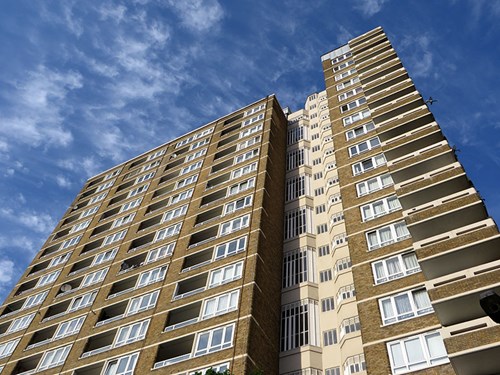
Barrier to success
The government target, as set out in the National Resources and Waste Strategy, is to recycle 50% of household waste by 2020. In London, the Mayor’s London Environment Strategy has set targets of 65% municipal recycling by 2030.
London Boroughs have produced Reuse and Recycling Plans (RRPs) detailing how they will achieve these targets but poor recycling performance in flats is one of the main barriers to achieving them. This is exacerbated by the growth in flats which means 46% of London's housing stock will be purpose-built flats by 2030.
Problematic contaminants
Whilst most flats have existing recycling facilities, the range of material streams collected is often limited, capture rates are low and contamination is high.
Materials such as food waste, textiles and WEEE have been identified as the most problematic contaminants in dry mixed recycling from flats in London, as well as accounting for a significant proportion of the waste produced overall (28.1%, 4.6% and 1.2% respectively).
Sadly, there are typically no dedicated facilities for these waste streams for the majority of residents living in purpose-built flats across the whole of the UK.
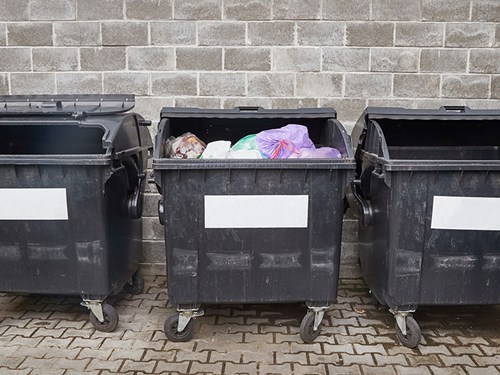
Trialling new interventions
Comprehensive capture
The primary aim of the project includes maximising the capture and quality of dry mixed recycling (DMR), which is largely made up of packaging.
Key contaminants of this waste stream include food waste, textiles and waste electricals. New facilities will be introduced to capture these effectively, with potential to reduce the contamination rates of the packaging captured through the DMR.
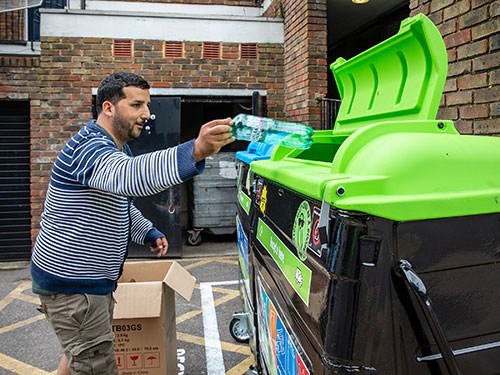
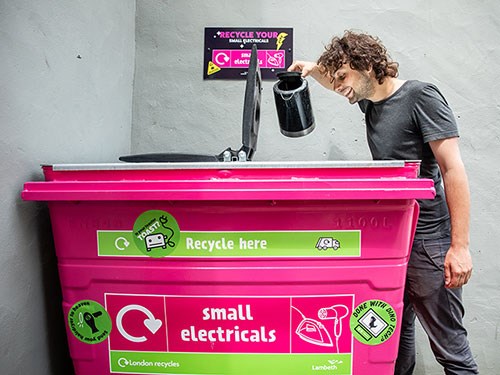
Recycling waste electricals
Each estate taking part in the trial will have a donation bank for small electrical appliances in a central location, where residents will be able to recycle items such as toasters and irons.
To raise awareness and encourage action, there will be a communal ‘clear-out day’ followed by two further pop-up collections to support residents.
Collecting food waste
The estates participating in the trial will all receive a new food waste service which will test two new interventions for the first time.
This includes pedal-operated housing units to help combat the ‘yuck’ factor associated with food waste and to address resident’s potential concerns around COVID-19, plus smaller food waste bins that can be hooked to the inside of kitchen cabinets.
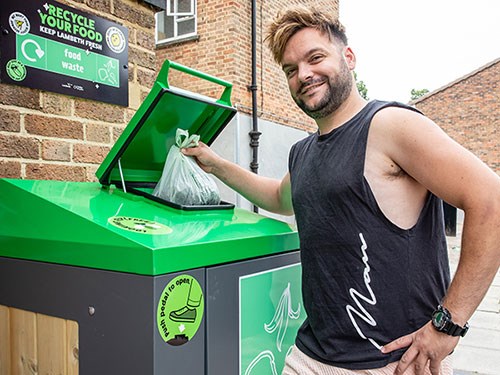
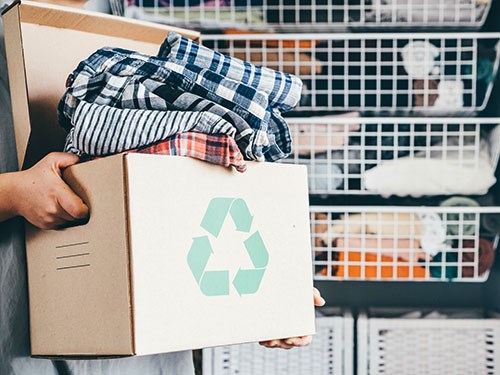
Clothes and shoes recycling
Each participating estate will also have a dedicated clear-out day for clothing and shoes, followed by two further pop-up collections.
Communication is key
Low engagement and participation leads to low recycling and capture rates. Research and project evaluation have repeatedly identified that young people (18-34-year olds) are the least effective recyclers in the city.
This project will introduce messaging approaches and behavioural interventions which will hopefully make young Londoners living in flats more motivated to recycle. Benchmarking and regular assessment of recycling composition will provide an accurate assessment of the effectiveness.
This project is committed to disseminate and amplify the results of this research to all local authorities and housing providers to ensure the findings can be beneficial to as many parties as possible, across the UK.
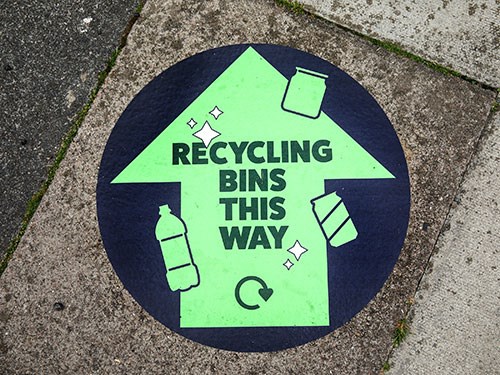
About ReLondon



